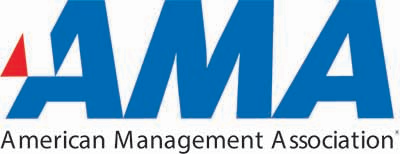Professional Partner Content
Are All Licenses Equal?
Published Wed Sep 04 2019
By K.C. Blonski and Bruce Marks
In today’s fast-paced society, time has become a precious commodity. Because of this, the want and need for immediacy has grown exponentially. This lack of patience has also spread into the business environment, where we all are struggling with competing priorities and tight deadlines. For example, learning organizations face multiple and immediate needs: onboarding new personnel, upskilling of existing talent, creating or sourcing content aligned to various business initiatives, developing engagement plans for headquarter staff and regional offices, and accelerating high-performing talent. They also have to ensure successful learning transfer to on-the-job application and take the global implications of training into consideration, with no increase in budget or even diminished budgets, resulting in reduced resources.
To effectively address these varied and continually changing priorities, learning organizations are seeking intellectual property (IP) that addresses not only the content necessary to support their strategies but the modalities that allow for diverse learning environments. Learning organizations require maximum flexibility to incorporate acquired IP into long-standing internally built programs, as well as the opportunity to customize this IP with organization-specific examples and vocabulary. They also need to provide varied modalities that allow for learning paths for individual, departmental and organizational learning and sustainability. To meet these needs, learning departments are looking to license this IP from various sources; to do so, they must conduct the proper due diligence when seeking out licenses marketed as “all access” or “unlocked access.” Many providers utilize these terms while offering their IP to companies; however, like purchasing a new car, buyers need to understand what’s standard and what’s optional.
To purchase a license that has everything an organization needs for its learning strategy, buyers should ask some key questions, including:
What content is included and how recently has it been updated?
Why was this content selected as part of the license?
What pre- and post-training assets are included in the license?
What flexibility is there to create derivatives or customize the content?
What modalities are included in the license?
Can the IP be utilized for the entire employee population?
Is your facilitator certification universal or by program?
Which services are included in the license and which are not?
Too often customers purchase licenses as a quick fix without realizing what’s truly included and what is in the optional/additional-cost bucket. Many find that there are certain restrictions placed upon the license that prohibit the realization of a successful training engagement. Buyers must understand all facets of a license before purchasing, to ensure that it provides the depth and flexibility necessary to support the value they seek, and, most importantly, the organizational impact their senior leadership expects.
As mentioned previously, we live in a constant state of change that is forcing all employees to acquire new or enhanced levels of skills to remain competitive. Learning organizations must adapt quickly and have at their ready the proper tools necessary to support these priorities. Ensuring that the license they’ve purchased enables them to support their organizational needs is critical to achieving the success they seek.
K.C. Blonski is vice president of sales, corporate learning solutions for American Management Association.
Bruce Marks is senior vice president of sales and business development for American Management Association.

